Strictly enforce non-publication of scores
Mr. Nguyen Phuong Bac - Literature teacher, Lam Thao Primary & Secondary School (Lam Thao, Bac Ninh ), said: According to regulations, student scores are personal information belonging to the private data group, and cannot be made public, unless with the consent of the student/parent.
Lam Thao Primary & Secondary School always strictly implements this regulation. The school absolutely does not publicly announce students' test scores in any form. Teachers do not read scores in front of the class, do not post scoreboards, and do not post them in public groups.
The return of papers and notification of test results are carried out according to the principle of individualization, ensuring respect for the dignity and privacy of students. Each student is informed of his/her own learning results; scores and comments are sent directly to students in class or transferred via electronic contact books to parents. In professional activities or competition reports, the school only uses aggregated data and absolutely does not disclose personal information.
Similarly at Lam Kinh High School ( Thanh Hoa ), according to information from Principal Nguyen Minh Dao, the school does not publicly announce students' scores on the bulletin board or internal media.
Learning results are reported via electronic contact books, student management software (VnEdu), or teachers directly communicate with students and parents in meetings, as well as through personal channels. This method not only ensures students' privacy, but also helps parents grasp fully and promptly, and can closely monitor their children's learning situation.
According to Ms. Hoang Phuong An - Principal of Phenikaa Primary School (Hanoi), the school strictly complies with the provisions of the 2016 Law on Children, Decree 56/2017/ND-CP and Circular 09/2024/TT-BGDDT on publicity in educational activities.
Student learning outcomes are personal information that must be kept strictly confidential. Therefore, the school does not publish test scores, exam scores, or student rankings in front of the class. Instead, learning outcomes are sent to parents via the internal electronic system or through private meetings, ensuring privacy and accuracy.
“We consider respecting students' personal information not only as complying with legal regulations, but also as practicing professional ethics and building a humane educational environment,” said Ms. Hoang Phuong An.
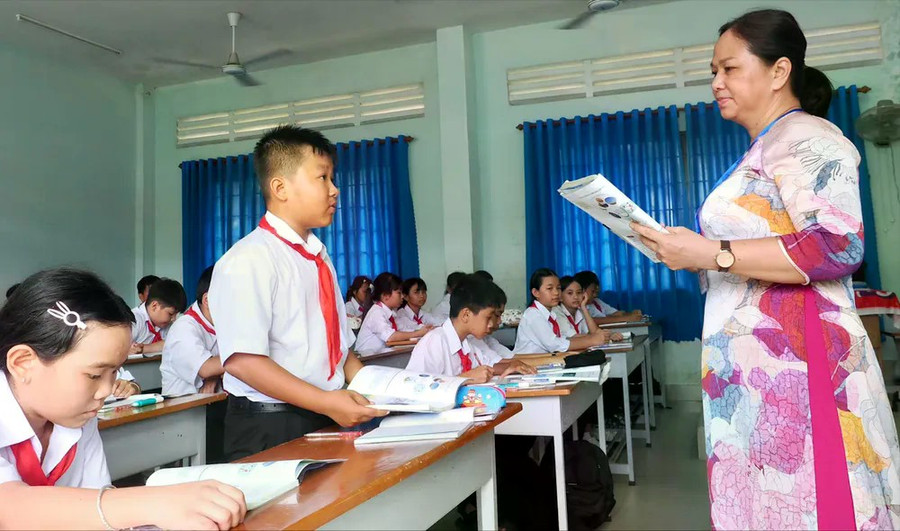
Using positive feedback for learner progress
For primary school students, feedback on learning outcomes must be a process of encouragement, guidance, and companionship, not just a matter of announcing scores. Expressing this point of view, Ms. Hoang Phuong An informed that at Phenikaa, teachers always spend time talking personally with students, helping them understand why they achieved those results and what they need to do to improve.
Teachers are encouraged to use positive feedback by acknowledging efforts, highlighting strengths, and providing specific guidance on how to improve. Each student is seen as a developing individual, not compared to others, but assessed on their own journey of progress.
According to Mr. Nguyen Phuong Bac, effective feedback is not only about scores, but mainly about personalized comments. When returning papers, teachers always clearly analyze strengths and weaknesses, combine with guiding students to self-assess using checklists, and clearly point out ways to overcome them so that students can recognize and learn from experience for the next test.
“Instead of comparing students, I focus on each student’s own progress, seeing what they did better today than before. When discussing assignments together, teachers only use assignment codes, not names to avoid pressure. I also value three-way communication (teacher - student - parent), through electronic contact books and direct exchanges when needed.
This approach helps each student be respected and encouraged at the right time; thereby, promoting confidence and self-learning spirit. All feedback will be done privately, directly or through information channels to ensure respect in education according to current regulations," said Mr. Nguyen Phuong Bac.
In order for teachers to do this better, Mr. Nguyen Phuong Bac suggested that it is necessary to continue to perfect the unified process of the entire education sector in returning assignments, securing scores, and ways to respond to learning outcomes. Strengthen training for teachers on competency assessment, assessment for progress, positive feedback skills, and personal data protection skills according to new standards.
Promote digital transformation in education, especially the system of reporting - commenting - monitoring learning results through personal security accounts. Strengthen coordination with parents, help parents understand the regulations and avoid accidentally revealing their children's learning information on social networks. Finally, the education sector should encourage the model of evaluating the process and learning records, thereby reducing the pressure on scores and focusing on the comprehensive development of students.
From his personal teaching experience, Mr. Nguyen Minh Dao believes that the most effective way to give feedback is to combine personalized feedback and encourage learning. Specifically, return assignments and give comments to each student individually, avoiding giving grades in front of the class.
Comments, verbal or written, focus on process, effort, and improvement rather than grades. Provide positive, constructive feedback, praising even small improvements and suggesting further training. Use parent-teacher conferences or one-on-ones to communicate results in a tactful way, helping students and parents stay on track.
To make feedback on learning outcomes both effective and ensure privacy, the solution Mr. Nguyen Minh Dao proposed is that schools need to increase the application of information technology (through student management software, electronic information portals) to respond to scores and make personalized comments.
At the same time, foster positive feedback skills for teachers, helping them convey information in an encouraging and humane way. Develop internal regulations on student information confidentiality, clearly specifying how to publish and store learning results. Encourage students to self-assess and set personal learning goals, helping them to be more proactive in the process of progress.
According to Ms. Hoang Phuong An, to effectively respond to learning outcomes, it is necessary to change perceptions and approaches. The education sector should promote training for teachers on assessment skills for progress, positive feedback skills and principles of student information confidentiality.
The school applies modern learning management technology to exchange results between teachers, students, and parents conveniently, safely, and transparently. Most importantly, it is necessary to build a school culture that is kind and respectful to students. When students feel safe, listened to, and recognized, they will be more confident and love learning. That is the true success of education.
Source: https://giaoducthoidai.vn/ca-the-hoa-phan-hoi-ket-qua-hoc-tap-bao-mat-thong-tin-khich-le-su-tien-bo-post756631.html



![[Photo] Unique art of painting Tuong masks](https://vphoto.vietnam.vn/thumb/1200x675/vietnam/resource/IMAGE/2025/11/14/1763094089301_ndo_br_1-jpg.webp)
![[Photo] Special class in Tra Linh](https://vphoto.vietnam.vn/thumb/1200x675/vietnam/resource/IMAGE/2025/11/14/1763078485441_ndo_br_lop-hoc-7-jpg.webp)


![[Photo] Unique architecture of the deepest metro station in France](https://vphoto.vietnam.vn/thumb/1200x675/vietnam/resource/IMAGE/2025/11/14/1763107592365_ga-sau-nhat-nuoc-phap-duy-1-6403-jpg.webp)
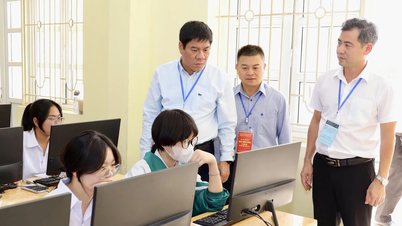
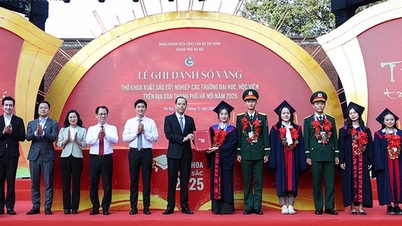

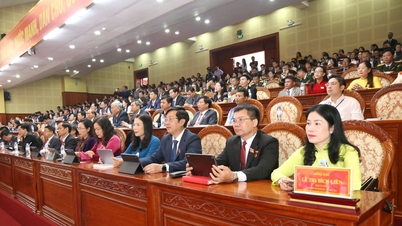

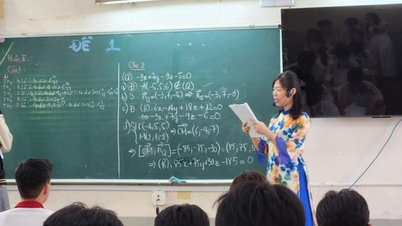

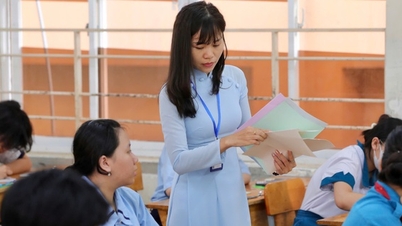


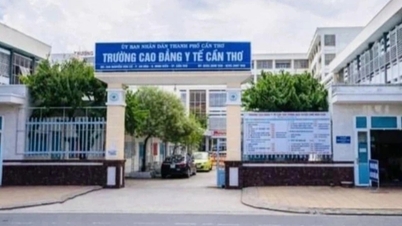



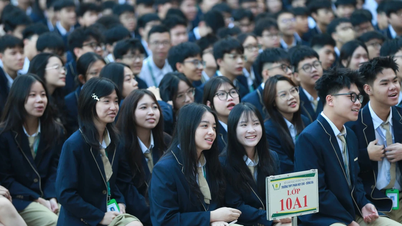


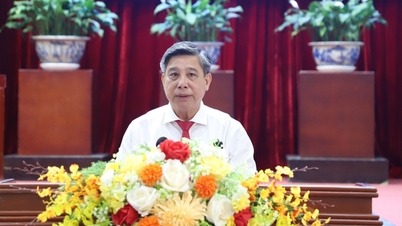
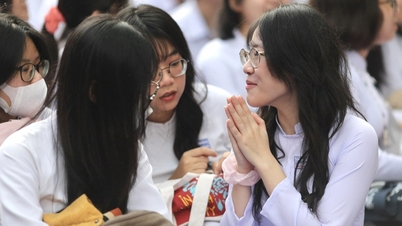




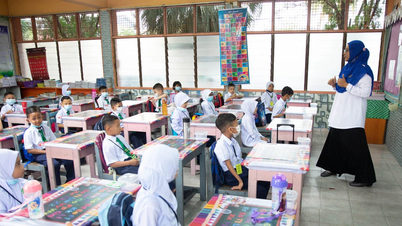
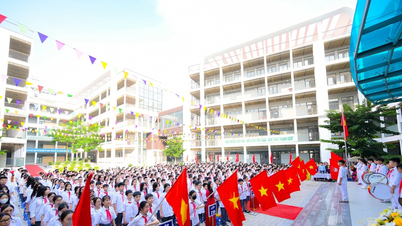
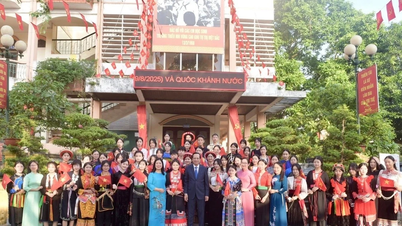


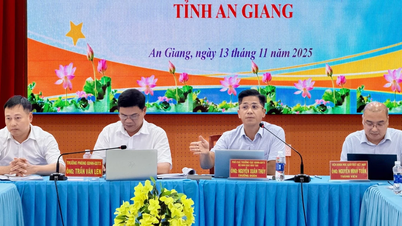
![[Photo] Deep sea sand deposits, ancient wooden ship An Bang faces the risk of being buried again](https://vphoto.vietnam.vn/thumb/1200x675/vietnam/resource/IMAGE/2025/11/13/1763033175715_ndo_br_thuyen-1-jpg.webp)



















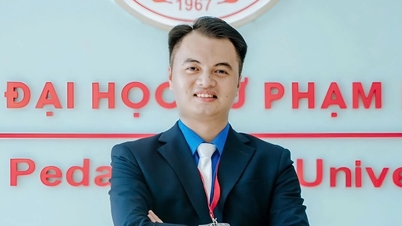




















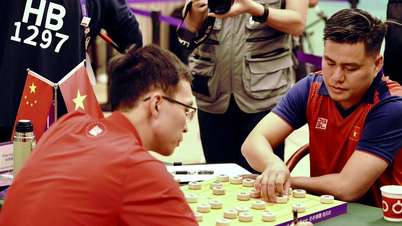
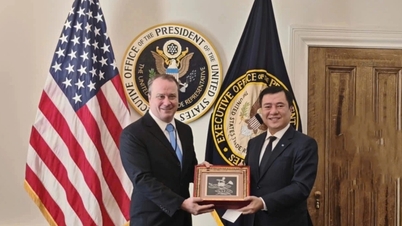

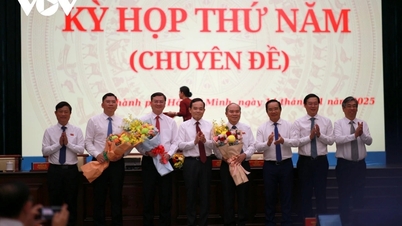









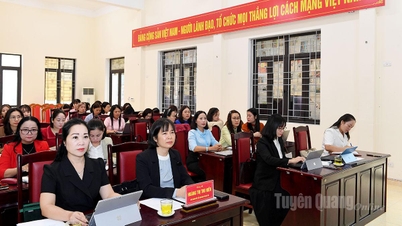



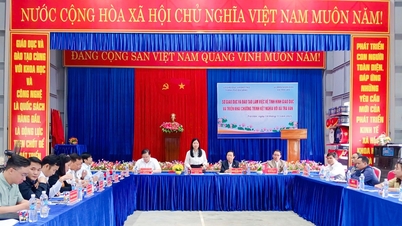











![Dong Nai OCOP transition: [Article 3] Linking tourism with OCOP product consumption](https://vphoto.vietnam.vn/thumb/402x226/vietnam/resource/IMAGE/2025/11/10/1762739199309_1324-2740-7_n-162543_981.jpeg)





Comment (0)